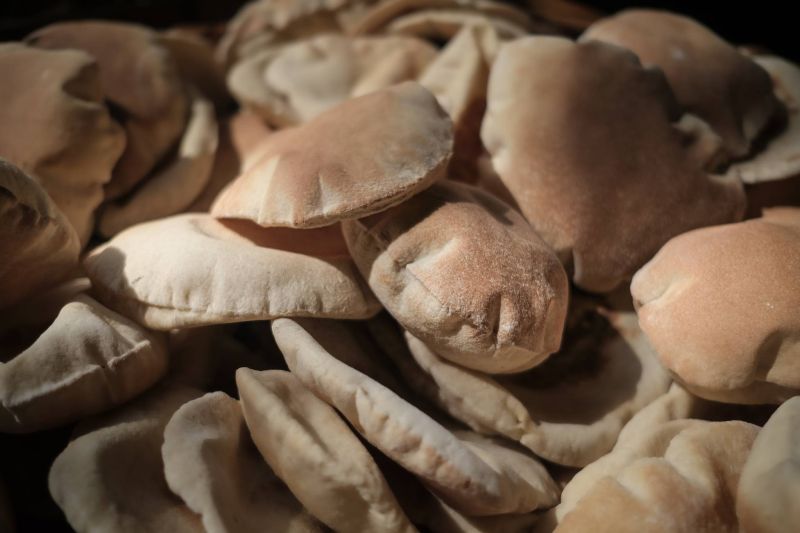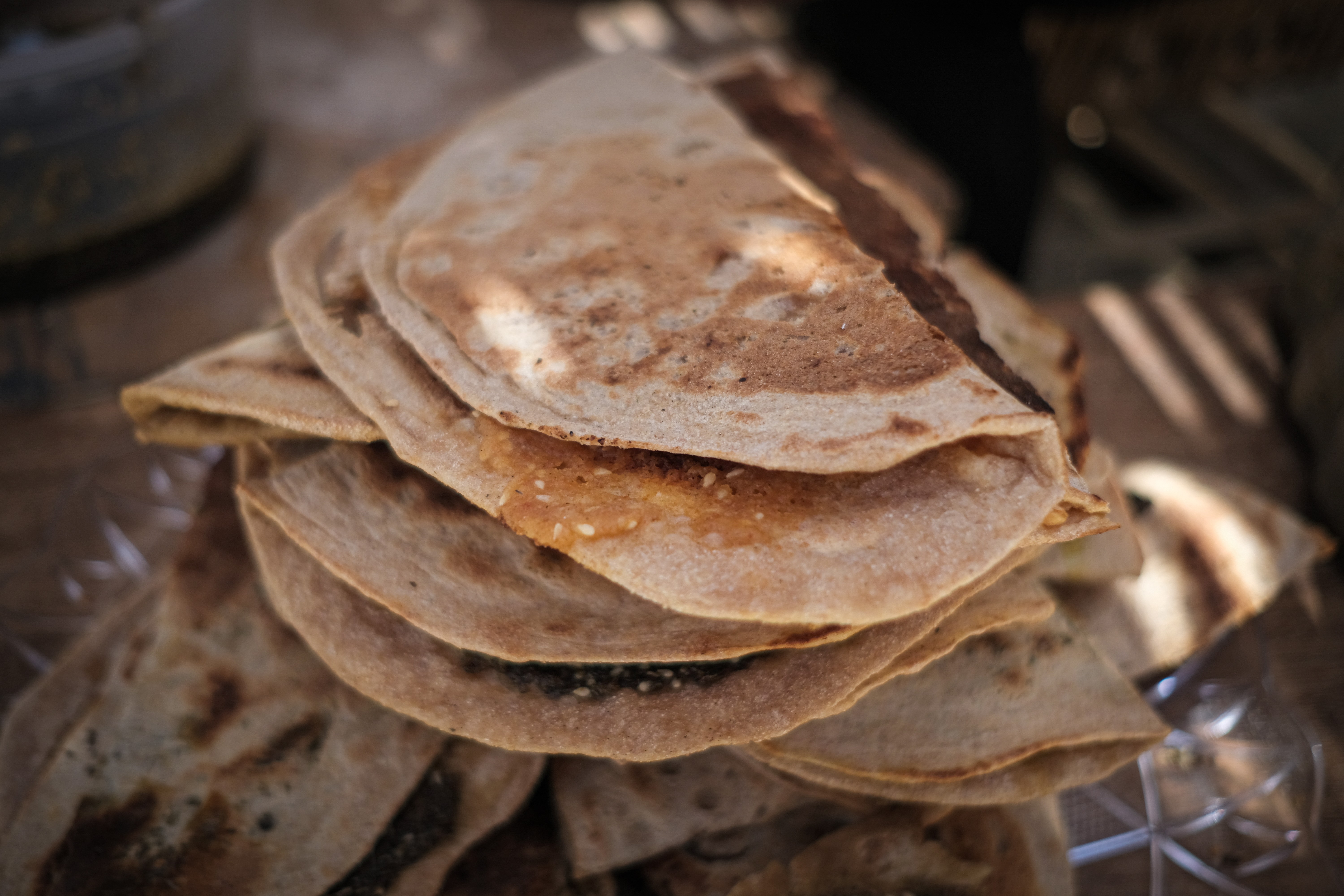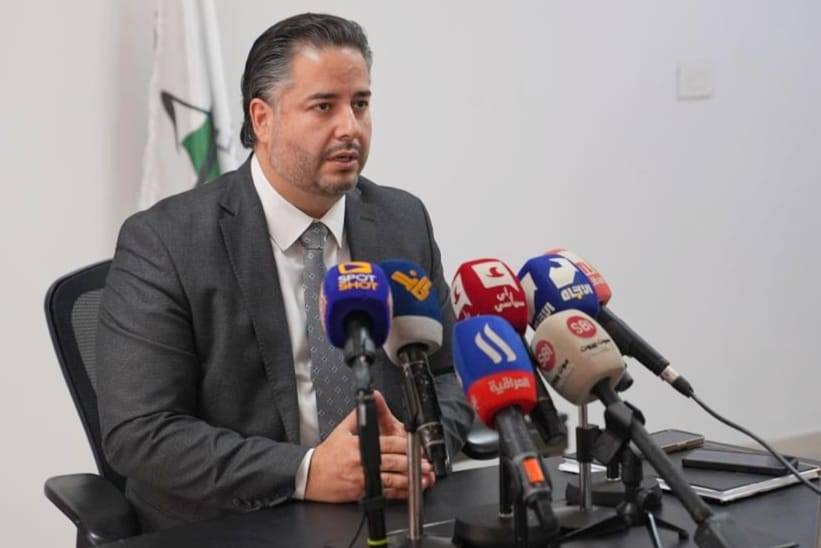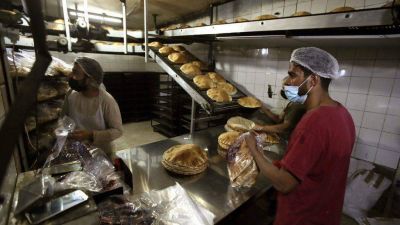
Bread loaves, August 26. (Credit: João Sousa/L'Orient Today)
BEIRUT — Caretaker Minister of Economy Amin Salam stated Wednesday that there is "no bread crisis" in Lebanon, and that there aren't any plans to remove subsidies.
"There is no bread crisis. There has been a delay in the arrival of some ships [carrying wheat] due to the Russian war which caused shortages in some areas, but this issue is being addressed," asserted Salam at the a press conference held at the Ministry of Economy in Beirut.
 Mana'ish, June 21, 2020 (Credit: João Sousa/L'Orient Today)
Mana'ish, June 21, 2020 (Credit: João Sousa/L'Orient Today)
There have been delays in wheat shipments arrivals to Lebanon since 2022, due to the war in Ukraine. Last February, Russia enforced a blockade of the Black Sea ports, trapping 20 million tonnes of grain waiting to be exported. At the start of the conflict, Lebanon had the greatest dependence on Ukrainian wheat globally. In 2022, 77 percent of Lebanon's total wheat imports were imported from Ukraine through the Black Sea, according to a report by Mercy Corps, a global humanitarian organization.
Salam said "a ship carrying 32,000 tons of wheat is on its way to Lebanon," and that two additional shipments of 32,000 tons might be ordered.
Bread subsidies will remain
Right now there is "no decision" to lift bread subsidies, said Salam, adding that as long as the World Bank's emergency wheat loan is in place, the bread subsidy will remain. Salam did not specify what will happen when the loan runs out in six to nine months. In January, he stated plans to work on a subsidy card exclusively for the purchase of bread, for the country's most vulnerable.
 Economy Minister Amin Salam during a press conference. Sept 13. (Credit: Mohamad Yassin/L'Orient Today)
Economy Minister Amin Salam during a press conference. Sept 13. (Credit: Mohamad Yassin/L'Orient Today)
In May 2022, the World Bank gave Lebanon the emergency $150 million loan to "avoid the disruption in supply over the short term and help secure affordable bread for poor and vulnerable households,” a spokesperson from the organization told L’Orient Today.
However, Mercy Corps's recent report claims that though the loan "will insulate Lebanon from short-term hikes, (...) sustained high commodity prices would shorten the lifespan of the loan, and subsequently erode Lebanon’s ability to continue bread subsidy regimes, with negative consequences for residents’ food security."
 Woman making Mana'ish in Lebanon, June 21, 2020 (Credit: João Sousa/L'Orient Today)
Woman making Mana'ish in Lebanon, June 21, 2020 (Credit: João Sousa/L'Orient Today)
Food security fears
Food insecurity in Lebanon has grown since the onset of the financial crisis in 2019 and the Aug. 4, Beirut port explosion, which destroyed the city's wheat silos and reduced the country's storage capacity.
In February, 33,000 tons of wheat arrived to Lebanon, which is equivalent to "about one month's consumption of Arabic bread in the country," according to a World Bank's statement.
In June the government announced plans to repurchase approximately 60,000 tons of grain in 2023, including soft wheat, durum wheat and barley. “It is important to note that Lebanon’s monthly requirement for soft wheat alone stands at 20,000 tons," caretaker Agriculture Minister Abbas Hajj Hassan told L'Orient Le Jour.
